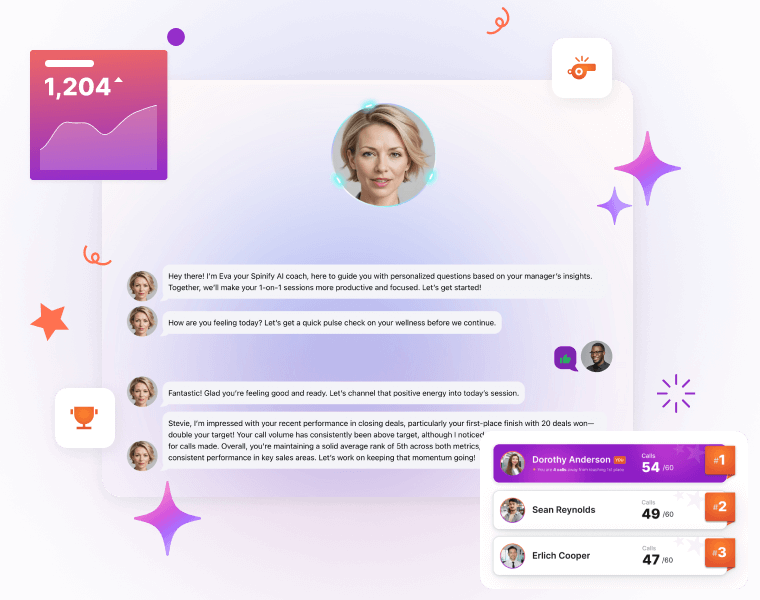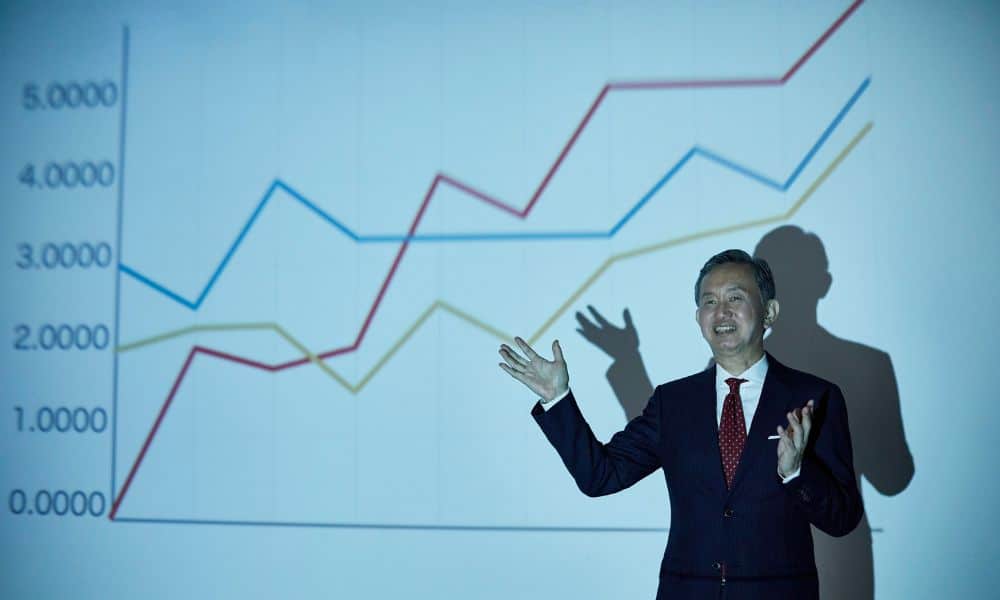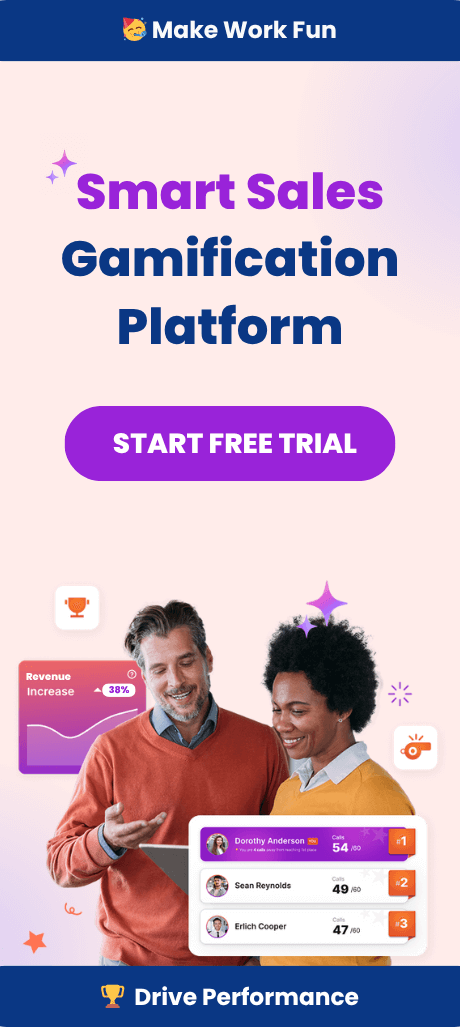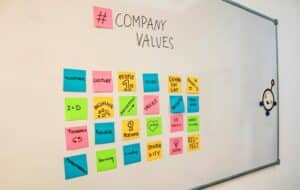As we move toward 2026, the sales industry is entering a new era defined by technology, flexibility, and human-centered leadership. Sales teams are evolving rapidly, integrating digital tools with traditional relationship-building skills. Organizations that embrace these transformations will outperform competitors. For sales professionals and leaders, staying ahead of emerging trends is crucial for success.As we move toward 2026, the sales industry is entering a new era defined by technology, flexibility, and human-centered leadership.
Sales teams are evolving rapidly, integrating digital tools with traditional relationship-building skills to create more efficient and effective strategies. Organizations that embrace these transformations will not only outperform competitors but also foster a more engaged and productive workforce. For sales professionals and leaders, staying ahead of emerging trends is crucial for success and sustained growth. Read on to find out how to leverage new technologies, adapt to flexible work models, and implement human-centered leadership in your sales strategy.
The Rise of AI-Driven Sales Coaching

Artificial Intelligence is revolutionizing how teams learn and perform. In 2026, AI-powered coaching tools like Spinify’s AI Coaching Agent will become standard for analyzing sales calls, identifying opportunities, and delivering personalized feedback. This shift signifies a move away from generic training methods towards highly specific, data-informed development that directly addresses individual strengths and weaknesses, fostering continuous improvement within sales teams.
The integration of AI into sales coaching promises a significant boost in productivity and effectiveness. According to McKinsey, AI can enhance sales productivity by up to 20%, demonstrating its potential to transform how organizations approach sales training and development. The future of coaching is undeniably adaptive, data-driven, and deeply personalized, ensuring that every sales professional receives the most relevant and impactful guidance to excel.
Predictive Performance Analytics Takes Center Stage
Sales leaders will no longer rely solely on historical data for strategic decisions. Predictive analytics will anticipate future performance, identify potential risks, and intelligently guide training decisions, moving organizations from reactive to proactive management. By analyzing vast datasets, these tools can uncover subtle patterns and correlations that human analysis might miss, providing a more comprehensive and forward-looking view of team performance.
Spinify’s performance grids and AI-predicted metrics already provide crucial visibility into trends before they fully materialize, empowering managers to make proactive coaching decisions. This foresight allows for timely interventions, targeted training, and the allocation of resources where they will have the greatest impact, ultimately preventing potential performance dips and maximizing sales outcomes.
The Merging of Sales Enablement and Performance Enablement
The traditional boundaries between sales enablement and performance management are blurring, signaling a more holistic approach to sales success. In 2026, a unified performance enablement model will emerge, seamlessly combining skill development, data analytics, and motivational tools into a single, cohesive strategy. This integration recognizes that effective sales performance is not merely about providing tools or training, but about fostering a comprehensive environment that supports growth, engagement, and results.
Spinify aligns these critical elements by connecting coaching, recognition, and analytics into a single platform, demonstrating the power of this integrated approach. By providing a unified system, organizations can ensure that every aspect of a salesperson’s journey – from initial training to ongoing performance management and motivation – is interconnected and working towards common goals, creating a more efficient and effective sales engine.
Integrated Skill Development Pathways

Within this unified model, integrated skill development pathways will become paramount. These pathways will leverage AI to identify individual learning gaps and then deliver personalized training modules, micro-learning content, and real-time coaching interventions. The focus will be on continuous upskilling, ensuring that sales professionals are always equipped with the latest techniques and product knowledge necessary to meet evolving market demands.
Data-Driven Motivation and Recognition
The merged model will also revolutionize how motivation and recognition are delivered. Moving beyond traditional leaderboards, data-driven insights will inform personalized recognition programs that acknowledge specific achievements, effort, and improvement. This approach fosters a culture of continuous engagement by tailoring rewards and feedback to individual preferences and performance metrics, thereby maximizing impact and sustained motivation.
Hybrid and Flexible Work Becomes the Norm
The hybrid work trend will fully mature in 2026, fundamentally reshaping the expectations of sales professionals. Sales representatives will increasingly expect flexible schedules and the freedom to work from anywhere, while simultaneously maintaining high levels of productivity. This shift demands that companies adapt their operational models and technology to support a dispersed workforce effectively.
Leading companies like HubSpot and Atlassian are already at the forefront of this evolution, championing hybrid-first models that prioritize flexibility without compromising performance. Spinify directly supports these distributed teams by offering gamified engagement tools that ensure remote and in-office representatives remain equally connected, motivated, and aligned with company goals, fostering a cohesive and high-performing sales environment regardless of physical location.
Real-Time Recognition Will Drive Motivation

The era of waiting for monthly awards or quarterly bonuses is rapidly becoming obsolete. The next wave of sales motivation is definitively focused on real-time recognition. This shift acknowledges the immediate impact that timely acknowledgment has on an individual’s morale and drive.
Platforms like Spinify exemplify this by providing instant notifications and dynamic leaderboards that celebrate wins precisely as they happen. This immediate feedback loop is crucial for keeping morale consistently high and maintaining strong momentum within sales teams. It fosters an environment where success is not just recognized, but celebrated in the moment, creating a continuous cycle of motivation and achievement.
Data Transparency Will Redefine Trust
In the evolving landscape of 2026, data transparency will transition from a beneficial practice to an essential component of organizational culture. Sales representatives will not only expect but demand clear and immediate visibility into their performance metrics and overarching goals. This demand stems from a desire for clarity, fairness, and a sense of control over their professional trajectory.
Spinify’s transparent dashboards are designed to meet this need, empowering every team member with the ability to see precisely where they stand in relation to individual and team objectives. This open access to performance data fosters a profound sense of accountability and, critically, builds an unshakeable foundation of trust within the sales organization.
Emotional Intelligence Will Outrank Experience
As automation continues to seamlessly integrate into and take over a multitude of repetitive tasks, emotional intelligence (EQ) is poised to become one of the most invaluable and sought-after skills in sales. The ability to genuinely listen, deeply empathize with customer needs, and adapt to diverse and often complex situations will increasingly be the definitive factor that distinguishes top performers from the rest. This human-centric approach is becoming paramount in a world where transactional interactions are increasingly handled by technology.
Forward-thinking companies such as Microsoft and LinkedIn have already recognized this paradigm shift and have proactively embedded comprehensive empathy training into their leadership development programs. This strategic investment aims to significantly enhance communication, strengthen interpersonal relationships, and cultivate deeper trust with both clients and internal teams.
Gamification Evolves Into Motivation Science

Gamification, far from being a passing fad, will continue to thrive and evolve, transforming into a much more sophisticated and data-driven science of motivation. This evolution moves beyond simple points and badges to a deeper understanding of human behavioral psychology. Spinify’s advanced gamified dashboards, meticulously designed rewards systems, and intuitive progress tracking features are built upon these very principles of behavioral psychology. By leveraging these insights, these tools are engineered to keep sales teams consistently engaged, highly motivated, and productive over the long term, transforming the sales process into an inherently rewarding and compelling experience.
Cross-Functional Collaboration: The Key to Integrated Customer Journeys
In the evolving sales landscape of 2026, the traditional silos separating sales, marketing, and customer success teams will become obsolete. Organizations are increasingly recognizing the imperative of an integrated customer journey, where every touchpoint is seamless and consistent. This shift is not merely a trend but a necessity, as evidenced by a Salesforce report indicating that a remarkable 76% of customers now expect consistent interactions across all departments. This high expectation underscores the critical need for a unified approach to customer engagement.
To meet this demand, businesses must foster a culture of cross-functional collaboration. This means breaking down the barriers that historically divided departments and instead promoting shared objectives and collective accountability. Spinify’s innovative cross-functional recognition tools are specifically designed to facilitate this integration. By providing a platform for celebrating shared successes and acknowledging contributions from various teams, Spinify helps to unify departments, ensuring everyone is working towards a common goal of exceptional customer experience. This collaborative synergy not only enhances customer satisfaction but also streamlines internal processes and boosts overall organizational efficiency.
Continuous Learning: Replacing Traditional Training for Dynamic Skill Development
The era of static, one-time training programs is rapidly drawing to a close. In today’s fast-paced business environment, such outdated methods are no longer effective in equipping sales teams with the dynamic skills required to succeed. The future of professional development lies in continuous learning, characterized by bite-sized, on-demand sessions that allow individuals to acquire knowledge and refine skills at their own pace and convenience. This agile approach to learning ensures that employees remain current with industry trends and best practices.
Furthermore, the integration of artificial intelligence (AI) is set to revolutionize how training is delivered and consumed. Platforms powered by AI insights, such as Spinify’s advanced coaching analytics, will play a pivotal role in this transformation. These intelligent systems can analyze individual performance data and identify specific areas for improvement, enabling managers to deliver highly personalized training recommendations. This tailored approach not only optimizes learning outcomes but also makes the training process more engaging and relevant for each employee, fostering a culture of ongoing growth and development.
Culture-Driven Sales Teams: A Competitive Advantage in the Modern Market
In 2026, company culture will transcend its traditional role and emerge as a significant competitive advantage. Organizations that prioritize and actively cultivate a strong, positive culture will be better positioned to attract, retain, and motivate top talent in the highly competitive sales arena. A thriving company culture is built upon foundational pillars such as recognition, transparency, and a strong sense of belonging. When employees feel valued, informed, and connected, their engagement and productivity naturally increase.

Spinify plays a crucial role in reinforcing a vibrant company culture through its daily recognition loops. These systems are designed to celebrate individual and team successes across every level of the organization, from entry-level representatives to senior management. By consistently acknowledging achievements and efforts, Spinify helps to foster an environment where hard work is appreciated, and contributions are visible. This continuous cycle of recognition not only boosts morale and motivates individuals but also strengthens team cohesion and reinforces the shared values that define a successful, culture-driven sales team.
The Shift Toward Value-Based Selling: Building Long-Term Customer Relationships
The sales landscape is undergoing a fundamental transformation, moving away from aggressive closing tactics and toward a more nuanced, value-based selling approach. This paradigm shift emphasizes understanding and solving customer pain points rather than simply pushing products or services. The focus is now firmly on creating genuine value for the customer, fostering trust, and building long-term relationships. This customer-centric approach is not just a strategic choice but a proven path to greater success.
A study by Harvard Business Review corroborates this shift, reporting that companies which prioritize value creation experience an impressive 25% higher customer loyalty. This statistic underscores the direct correlation between a value-driven sales strategy and sustained customer relationships. Tools like Spinify are instrumental in facilitating this transition by helping sales teams track customer-centric metrics. By focusing on indicators that reflect customer satisfaction and success, Spinify encourages sales representatives to prioritize the development of enduring relationships over the pursuit of short-term wins, ultimately leading to greater customer lifetime value and stronger business growth.
Ethical and Sustainable Selling Will Rise in Importance

In 2026, the sales landscape will be fundamentally reshaped by an unyielding demand for ethical and sustainable practices. These will no longer be considered niche differentiators but rather a standard expectation across all industries. Customers, now more informed and socially conscious than ever, will actively seek out and patronize companies that demonstrate a genuine commitment to integrity, inclusivity, and environmental sustainability. This shift is not just consumer-driven; employees, particularly the younger generations entering the workforce, will increasingly prioritize working for organizations whose values align with their own.
For sales leaders, this paradigm shift necessitates a re-evaluation of traditional performance metrics. Beyond the crucial quantitative measures of sales volume and revenue, success will also be defined by qualitative indicators of ethical conduct and transparency. This means implementing robust frameworks to measure and reward not only the achievement of sales targets but also adherence to ethical guidelines, honest communication with clients, and a demonstrable commitment to sustainable practices throughout the sales cycle. Companies that embed these values into their core sales strategies will build stronger, more lasting relationships with customers and cultivate a more engaged and loyal workforce.
The Integration of AI Assistants in Daily Workflows
The integration of artificial intelligence (AI) assistants into daily sales workflows is set to revolutionize productivity and efficiency in 2026. These intelligent tools will move beyond basic automation, taking on a more sophisticated role in managing the routine, administrative burdens that often detract from a salesperson’s core mission. Imagine AI assistants seamlessly updating Customer Relationship Management (CRM) systems with every interaction, intelligently scheduling meetings based on team availability and client preferences, and sending timely, personalized follow-up reminders.

By offloading these repetitive yet essential tasks, AI empowers sales representatives to dedicate their valuable time and expertise to high-value activities that truly drive growth. This includes building deeper relationships with clients, strategically identifying new opportunities, crafting bespoke solutions, and focusing on the art of persuasion and negotiation. Platforms like Spinify, with their advanced AI integrations, exemplify this trend. By automatically syncing progress data and providing real-time insights, these tools ensure that sales teams remain focused on the critical act of selling, minimizing the administrative overhead that has historically consumed a significant portion of their day. The result is a more agile, data-driven, and ultimately more effective sales force.
Wellness and Mental Health in Sales
The sales profession has long been synonymous with high pressure, intense competition, and demanding targets, often leading to significant challenges with burnout. In 2026, there will be a pivotal shift in how companies approach the well-being of their sales teams, moving beyond mere lip service to treating mental health as a measurable business priority. This proactive approach recognizes that a healthy, engaged, and resilient sales force is directly correlated with sustained performance and lower attrition rates.
Expect to see a widespread implementation of comprehensive well-being programs tailored specifically for sales professionals. These programs may include access to mental health resources, stress management workshops, mindfulness training, and initiatives promoting work-life balance. Furthermore, flexible schedules will become increasingly common, allowing sales reps greater autonomy over their work environment and personal time. Technology will also play a crucial role in supporting this shift. Platforms like Spinify, for instance, are designed to actively promote recognition, celebrate achievements, foster healthy competition, and provide tools that help balance intense sales periods with periods of recovery and motivation, thereby boosting overall morale and preventing burnout before it takes hold. Investing in the mental well-being of sales teams will become a strategic imperative, yielding benefits not only for individual employees but for the company’s bottom line.
Diversity and Inclusion as a Sales Imperative

The evidence is clear and compelling: diverse teams consistently outperform homogeneous ones. A landmark study by Boston Consulting Group, for example, revealed that companies with diverse management teams achieve a remarkable 19% increase in revenue specifically from innovation. In 2026, sales organizations will not only continue but accelerate their prioritization of diversity and inclusion. This commitment will extend far beyond mere policy statements, becoming a deeply embedded core driver of both performance and creativity within sales departments.
True diversity encompasses a broad spectrum of backgrounds, experiences, perspectives, and identities, including but not limited to gender, ethnicity, age, sexual orientation, disability, and socio-economic status. When sales teams reflect the diverse customer base they serve, they gain invaluable insights, better understand varied needs, and are more adept at building rapport and trust. An inclusive environment, where every team member feels valued, heard, and empowered to contribute their unique insights, fosters a culture of innovation. It encourages new ideas, challenges conventional thinking, and ultimately leads to more effective problem-solving and stronger sales strategies. Companies that champion diversity and inclusion will not only tap into a wider talent pool but also cultivate a more dynamic, empathetic, and ultimately more successful sales force capable of navigating the complexities of a global marketplace.
Automation With a Human Touch
Automation is revolutionizing sales, streamlining repetitive processes, and freeing up valuable time for sales professionals. While technology will continue to advance and take on more tasks, the human element in sales remains irreplaceable. Building relationships, understanding nuanced customer needs, and providing empathetic support are areas where human interaction continues to be paramount. This blend of efficiency and empathy is key to modern sales success.
Spinify understands this delicate balance, combining sophisticated automated performance tracking with personalized, human-driven coaching. This approach ensures that while routine tasks are handled with maximum efficiency, the critical aspects of sales—motivation, development, and strategic guidance—are supported by genuine human insight. By integrating technology to manage data and identify trends, and then leveraging human coaches to interpret these insights and deliver tailored advice, Spinify empowers sales teams to achieve higher levels of performance and job satisfaction.
Personalized Goal Setting Through AI Insights
[image – Spinify AI Insights]
The era of generic, one-size-fits-all sales targets is quickly becoming a thing of the past. Modern sales organizations are recognizing the profound impact of personalized goals, which acknowledge the unique strengths, areas for growth, and individual preferences of each team member. When goals are tailored, they become more meaningful and motivating, fostering a sense of ownership and increasing the likelihood of successful achievement. This shift from broad objectives to customized aspirations is a significant driver of improved sales performance and employee engagement.
Spinify leverages the power of AI to facilitate this personalized approach to goal setting. Its AI coaching features empower managers to move beyond arbitrary targets, helping them to customize goals that are not only aligned with overarching business outcomes but also resonate deeply with individual motivation. By analyzing past performance data, identifying key development areas, and understanding personal career aspirations, Spinify’s AI provides the insights necessary to craft truly personalized and achievable goals, thereby fostering a more engaged, productive, and successful sales force.
Preparing for the Sales Team of 2026
The sales workplace of 2026 will be a fusion of human skill, technological intelligence, and purpose-driven culture. Organizations that embrace this blend will lead the market in innovation, engagement, and growth, creating a dynamic and highly effective sales force. Spinify sits at the center of this transformation—empowering teams with AI insights, real-time recognition, and gamified performance analytics.
By leveraging these advanced tools, Spinify helps sales teams not only adapt to but thrive in the evolving landscape, fostering a culture of continuous improvement and measurable success. The future of sales is already here. Try Spinify today to prepare your team for the trends shaping tomorrow’s workplace and unlock their full potential.




